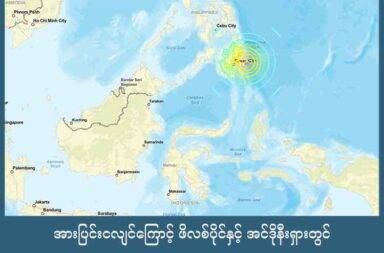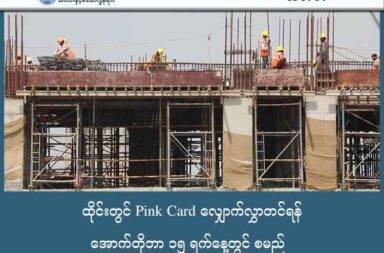Female Political Prisoners Suffer Sexual Abuse in Burmese Prisons
By Network Media Group
Saturday, July 1, 2024
Female prisoners of conscience who have been incarcerated after the coup by the military dictatorship endure sexual violations, humiliation, and other forms of human rights abuse at the hands of their captors in penitentiaries across Burma.
“When female prisoners return to prison from being outside, prison staff will physically search their bodies. Even if they are menstruating, they don’t care. They’re forced to take off their sarong,” Ma Zin May Thet, the information officer of Women’s Organisation of Political Prisoners, told NMG. This always happens when a woman returns from the clinic, she elaborated.
Female political prisoners are sometimes held in an isolation cell, they must survive on meagre food rations, and their access to healthcare is restricted.
Prisons no longer allow prisoners to receive visits from friends. Only immediate family is allowed to see them since May 22. Prisoners have complained they only receive one-third of the food their families send them after these items pass through rigorous inspection by the guards.
Defendants held in custody awaiting trial have been physically threatened with guns before arriving at the prison courthouse. Police have pressured lawyers of political prisoners to restrict the questions they ask or answers they provide to the judge during their client’s trial.
Human rights violations have been reported by prisoners of conscience at at least ten prisons including Daik-U, Thayawady, Yamethin, Myingyan, Kyaikmayaw, Dawei, and Mandalay Central Prison.
Mandalay Central Prison, informally known as Obo, is thought to be the worst. Prison staff have beaten inmates for protesting with wooden sticks and iron rods as well as torturing them with electrical shocks. Guards have refused injured prisoners medical care, and prisoners have been kept in isolation without food or water.
Since the coup, on February 1, 2021, there have been 26,799 until May 31, with 20,543 who are still detained or awaiting sentencing, according to the advocacy group Assistance Association for Political Prisoners.


